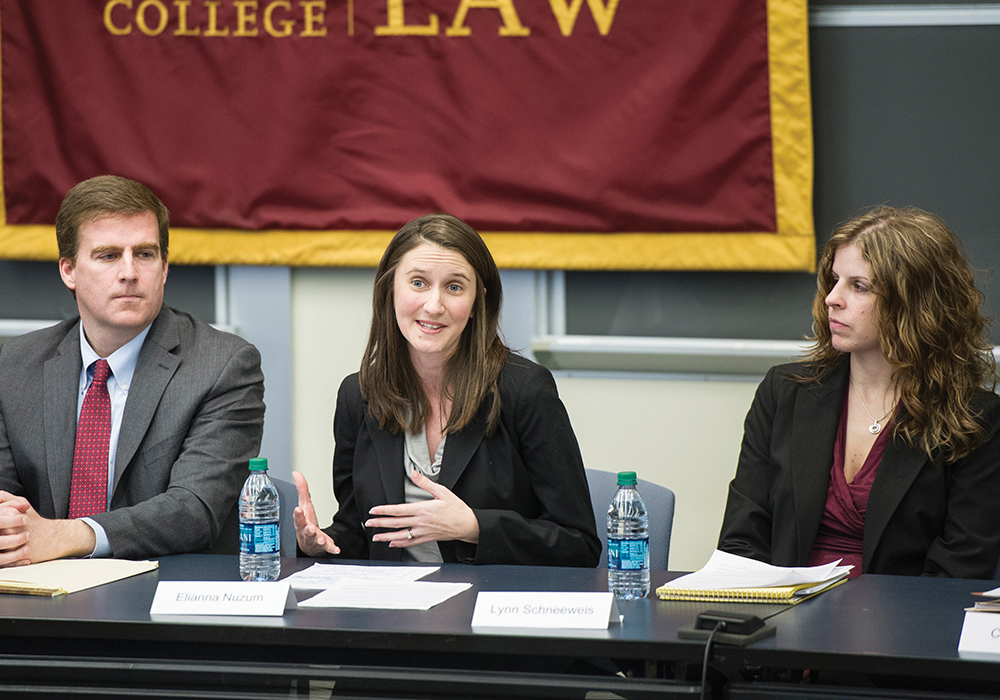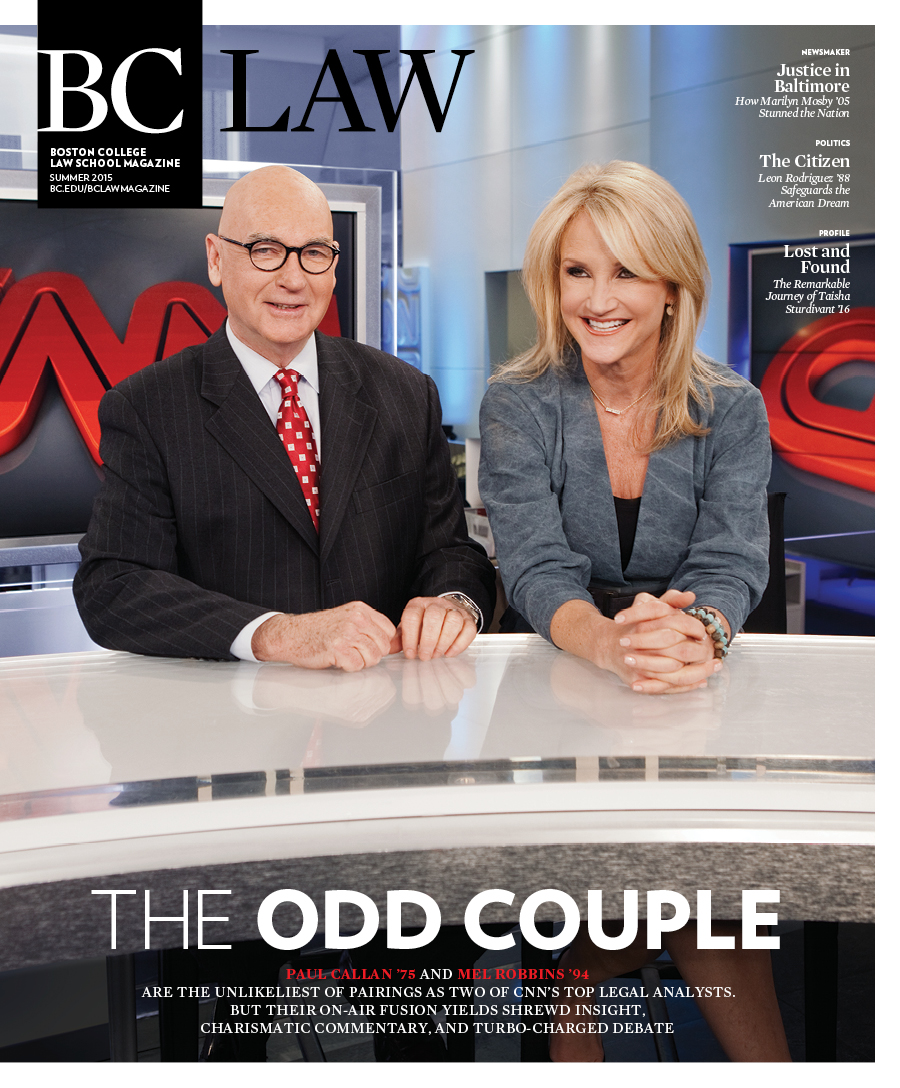
It’s a shocking piece of an already shocking story. Lowell, Massachusetts, native Dennis Maher spent more than nineteen years in prison (1984-2003) for two sexual assaults he did not commit. While incarcerated, he sought exoneration through DNA testing, but was repeatedly denied without so much as a hearing. Then a law student on his Innocence Project case got an idea from a Hollywood movie based on the true story of exoneree Kenny Waters: She persuaded a Middlesex Court clerk to look for Maher’s trial evidence in the courthouse basement.
And there it was.
DNA testing proved Maher innocent of one of the rapes. Weeks later, evidence from his second rape trial miraculously materialized, and DNA testing again proved him innocent. But here’s the thing. Had those boxes of evidence been properly catalogued and accessibly stored, Maher’s time in prison might very well have been cut in half.
A panel of criminal justice experts came to the Law School in March to discuss efforts underway in Massachusetts to correct the circumstances faced by Maher, Waters, and many others. The panelists were members of the Post-Conviction DNA Testing Assistance Program Working Group, which is addressing a 2012 statute, Chapter 278A, “Post-Conviction Access to Forensic and Scientific Analysis.” The law establishes procedures for DNA testing and other scientific analysis in wrongful conviction cases, and sets forth rules for the retention, handling, preservation, and storage of evidence.
“While Massachusetts was one of the last states to enact a law mandating evidence retention and access to evidence for scientific testing, the working group’s collaboration is a great model for future reform.” —Professor Sharon Beckman
The working group is an unusual collaboration of public defenders (Committee for Public Assistance Services Innocence Program), public interest lawyers (the New England Innocence Project), prosecutors (the Middlesex District Attorney’s Office and the Suffolk District Attorney’s Office), courts (the Middlesex Superior Court Clerk’s Office and the Suffolk Superior Clerk’s Office), and police (the Massachusetts State Police Crime Lab and the Boston Police Crime Lab). They have been working together to identify cases with viable post-conviction innocence claims and conduct DNA testing when possible. They are also working to improve systems for storing and preserving criminal evidence after convictions. The group’s work is being funded through grants from the National Institute of Justice, a subsidiary of the US Department of Justice.
“While Massachusetts was one of the last states to enact a law mandating evidence retention and access to evidence for scientific testing, the working group’s collaboration is a great model for future reform,” says Clinical Professor Sharon Beckman, director of the BC Law Innocence Program who was recently appointed to the SJC’s committee on eyewitness protection.
Seven working-group members attended the panel discussion, “Collaborating Against Wrongful Convictions,” moderated by Beckman and by students Jennifer Flynn, Jennifer Henricks, and Lauren Robbins. Panelists told disturbing stories of evidence stowed in sketchy courthouse cellars and poorly resourced police stations, of bloody shirts displayed to juries on poster board, stuffed into plastic bags, and left to degrade, undocumented, in storage, of drug evidence mishandled at trial by order of a judge, and of murder weapons passed among the gloveless hands of jurors. The working group is assembling a best practices manual for inventorying, tracking, and storing evidence for future DNA innocence cases, and Middlesex and Suffolk counties are preparing inventories of their evidence and starting the preservation process. Given that more than 30 percent of the Massachusetts prison population is in Suffolk and Middlesex counties together, this initiative will touch a significant number of cases.
Much more work is needed, panelists emphasized. Counsel, police, and courts need training, storage facilities must be built and maintained, and tracking systems must be put into place.


